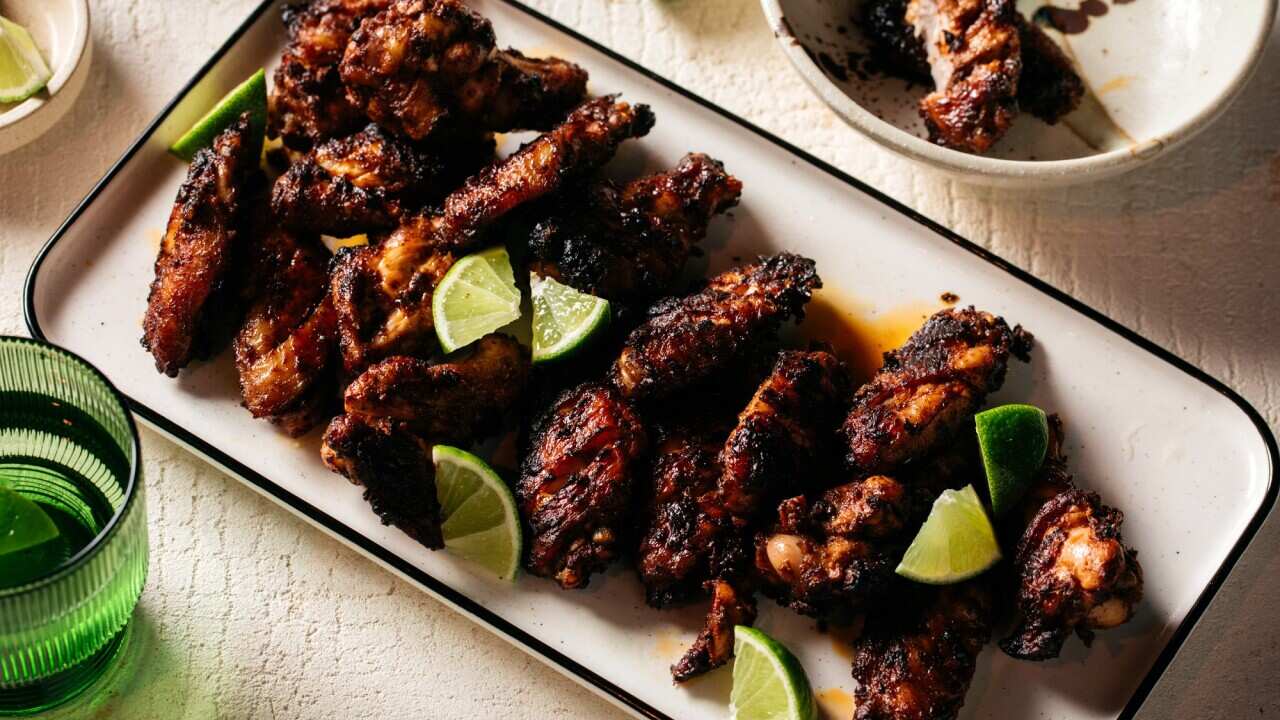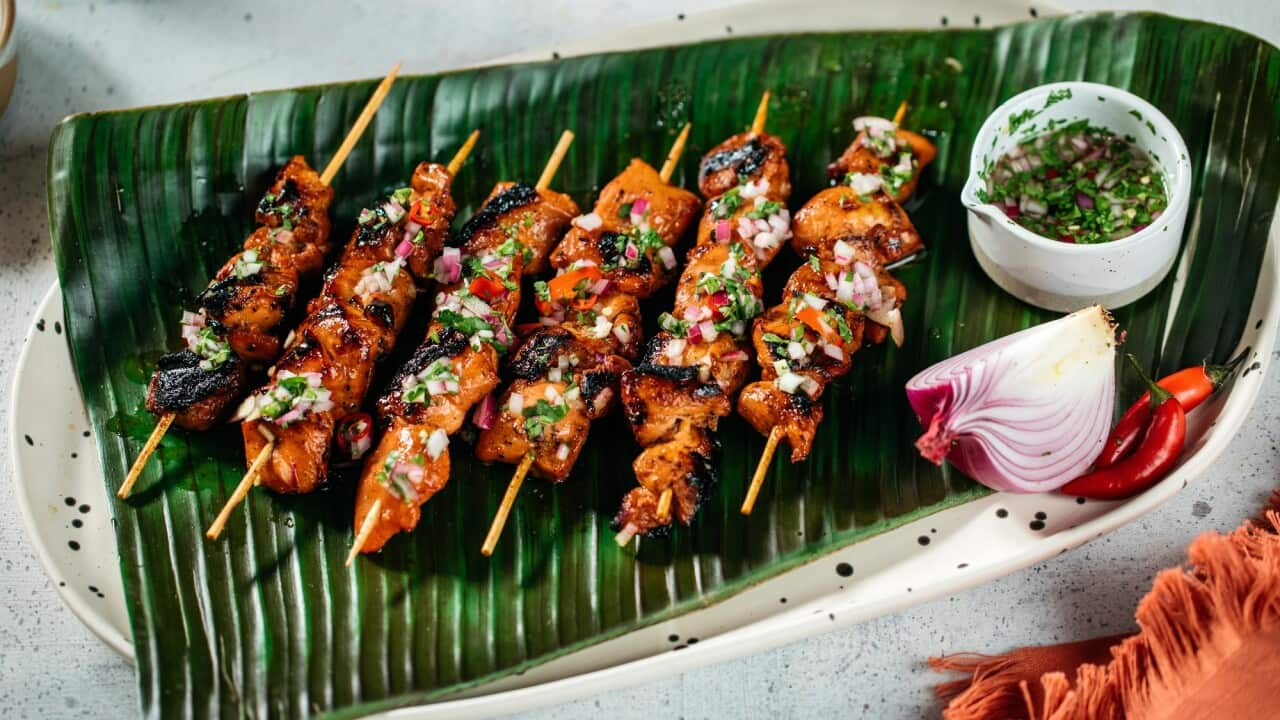It is the moment a loud American enters the room, claps his hands and bellows, “COFFEE!” at no one in particular, that I realise my dining habits in Kenya have to change. Eyes moving upwards from the mushrooms swimming in cream on my toast (no, I don't know why either), I watch the man join his fellow Americans as they bark orders at the staff ferrying onion rings and steaks over to their crew. “Excuse me, chef?” I ask the ever-smiling gentleman rushing back to the kitchen. “But do you think it's possible to feed me Kenyan-style this evening?” His smile only grows wider.
That evening, Jonathan and I are eating by candlelight in that otherwise empty restaurant. To an outsider, we might seem an unlikely pair – the Western woman in the jeans and the Maasai elder in his vibrant red and blue cloth, silver chains clinking melodically as he moves his fork up and down – but we are bunkered down in serious chat.
Jonathan (real first name Oleshagegi Olondiriro - I never learn his last name) is eating meat for the first time in a month, and he claps his hands with joy as the waiter brings out a plate of roast lamb, stir-fried kale and ugali (maize flour cooked in boiling water). A traditional Kenyan dish eaten in many forms throughout the country (often made with chicken or lamb), for a Maasai such as himself, it is still something of a rarity. The traditional Maasai meal is a cup of cow’s blood mixed with fresh milk first thing in the morning, nothing more, nothing less, he tells me, detailing how a cow has a rope tied around its neck like a tourniquet before a ‘sharp shooter’ uses something like an arrow to draw blood. Added to milk, it resembles a pink milkshake and, according to Jonathan, is ‘incredibly delicious’. “You should come over and try some,” he smiles and I tell him that’s one of the more interesting drink suggestions I’ve had lately. I much prefer a gin and tonic.
The other option – if I’m not sold on blood and milk, that is – is their elephant dung tea, described by Jonathan as ‘nature’s ultimate medicine’. “We collect it fresh from the elephant, dry it up on the roof and then boil and strain,” he says, explaining that since the elephant travels long distances eating every leaf in its path, its health advantages are nutritious. “It’s very spicy though so the kids have to have it with milk so it doesn’t hurt their throats.” Again, I am asked to come over and try it some time. He’s nothing, if not generous.
We fall silent again and I listen the clink of his chains as I consider my counter-arguments. It takes me all of 10 seconds to realise I don’t have one. With rates of obesity and diet-related illness skyrocketing across the Western world, I can’t say what we’re doing is that much better, frankly. And although it’s said the Maasai have one of the lowest life expectancies in the world (around 50), it’s suggested their high rate of infant mortality is what brings down their average, rather than their actual diet. Certainly, many of the Maasai I meet at the villages during my stay are over 80 and Jonathan’s own grandmother is still relatively spritely at 110.

Roast chicken, ugali and stir-fried kale. Source: SBS Food
...since the younger Maasai have started travelling to Nairobi for schooling, they have started to bring their modernised diets back with them – and it’s costing them big.
There are problems at hand, however. Traditionally, the Maasai people were strong, immune to common diseases such as typhoid and malaria, but since the younger Maasai have started travelling to Nairobi for schooling, they have started to bring their modernised diets back with them – and it’s costing them big, according to Jonathan. “Suddenly more and more of us are eating new things like chicken and ugali and we’ve started getting sick with things we never could have imagined,” he says, adding that when an elder in his village got diagnosed with cancer three years ago, no-one actually knew what it was. “We had to get doctors to explain it to us because we had never seen it before.”
Still, tonight this is of little concern as he tucks into the meat and rips apart the ugali with his hands, using it to scoop up the kale. Health issues aside, meat here is expensive – $55 for a goat and up to $550 for a cow, which is then shared with the whole village. “I still can’t understand vegetables – they’re odd things,” he admits. “But it’s probably a good thing we can’t afford meat very often because it sure tastes great!”
I laugh and take a second to mull over my own journey getting to this table tonight. I’m lucky; I’ve never known what it’s like to be hungry, but sometimes I wonder if it’s because of this luck that I and many others like me, often fail to see what’s really going on in front of us. Yes, I could have dined like the Americans on my onion rings and steak in the company of other Westerners and left Kenya with some stories of lions and elephants (without all the clapping and bellowing, I am sure), but none the wiser about her gorgeous people.
But I already know that, thanks to Jonathan’s company, when I come away from this meal, I will have ingested so much more than this delicious food, and my life will be richer for it. That’s the beauty of breaking bread. That’s the beauty of travel.
Jonathan, you are welcome to come over for a gin and tonic any time.
Dilvin Yasa travelled as a guest of Swagman Tours and Kenya Tourism Board. For more information on Kenya, visit . To book your own Kenya adventure, visit Swagman Tours at .









